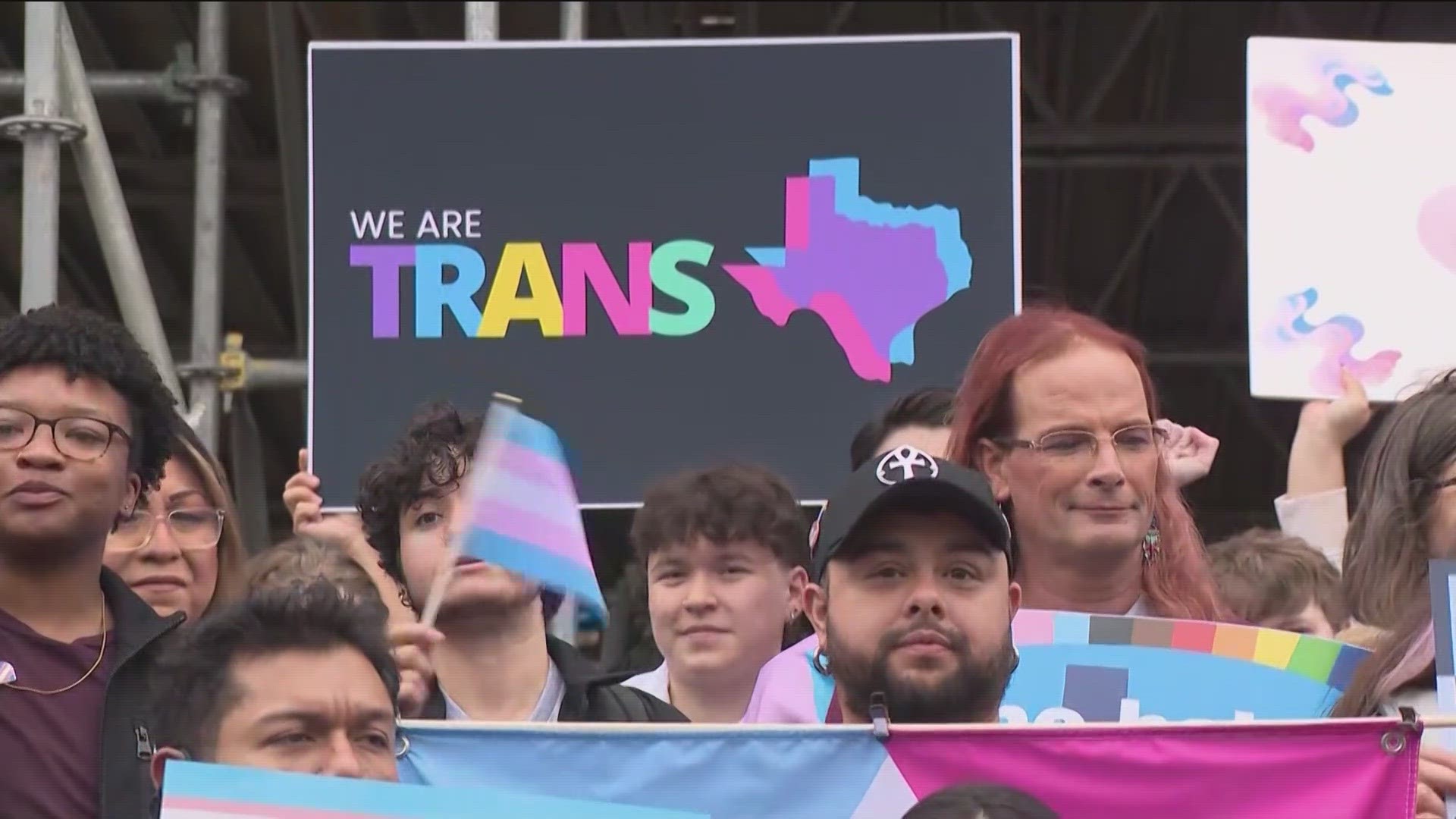AUSTIN, Texas — Opponents to Senate Bill 14, the legislation that would block some Texas youth from treatment for gender transitioning and gender dysphoria, are trying to stop it from going into effect next month.
"We witnessed an unprecedented number of anti-LGBTQ bills, over 140 were filed here in Texas," said Ricardo Martinez, CEO Equality Texas. “Among the seven that were signed into law, SB 14 promises to cause the most harm."
Five Texas families with transgender children, three medical providers and two equality organizations, PFLAG and GLMA, filed a lawsuit against the state in July, saying SB 14 blocks transgender youth in Texas from getting necessary and life-saving medical care.
“It is targeted and cruel, and the clearest type of discrimination that a law can have,” said Brian Klosterboer, an ACLU attorney.
The plaintiffs are asking for a temporary injunction of the legislatino, which would stop it from going into effect on Sept. 1.
Author of SB 14, State Sen. Donna Campbell, put a statement on X, formerly known as Twitter, in response to the lawsuit last month. She wrote in part, “The lawsuit filed seeking to prohibit the enforcement of Senate Bill 14 is not unanticipated, but we are confident the law is on our side, and that any attempts to overturn this legislation will ultimately be unsuccessful."
She also wrote, "We believe it is the sworn duty of the Texas Legislature to protect the safety of the children of our state – including from well-meaning but misguided physicians."
On the second day of the hearing, the court heard from the plaintiffs' final witness, Nathan Noe, a pseudonym for a transgender teen, who talked about his struggles with gender dysphoria. All of the transgender youth and their families testifying in the hearing used pseudonyms for safety.
The state started with their expert witness, Dr. Michael Laidlaw, an endocrinologist, who talked about the lifelong physical health risks that gender transitioning treatments like puberty blockers and cross-sex hormones can have on young children.
The court also heard from several other of the state’s expert witnesses, including doctors, a research expert and a therapist.
Judge Maria Cantú decided to forego closing arguments, so the final decision will come after the judge reviews supplementary briefs. But opponents to SB 14 said even if they don't get the outcome they want, they won't stop fighting.
"If the Texas attorney general continues to waste taxpayer dollars trying to defend this indefensible law, we are prepared to show every step of the way that this law is discriminatory and violates many of the rights that we all hold most dear," Klosterboer said.

